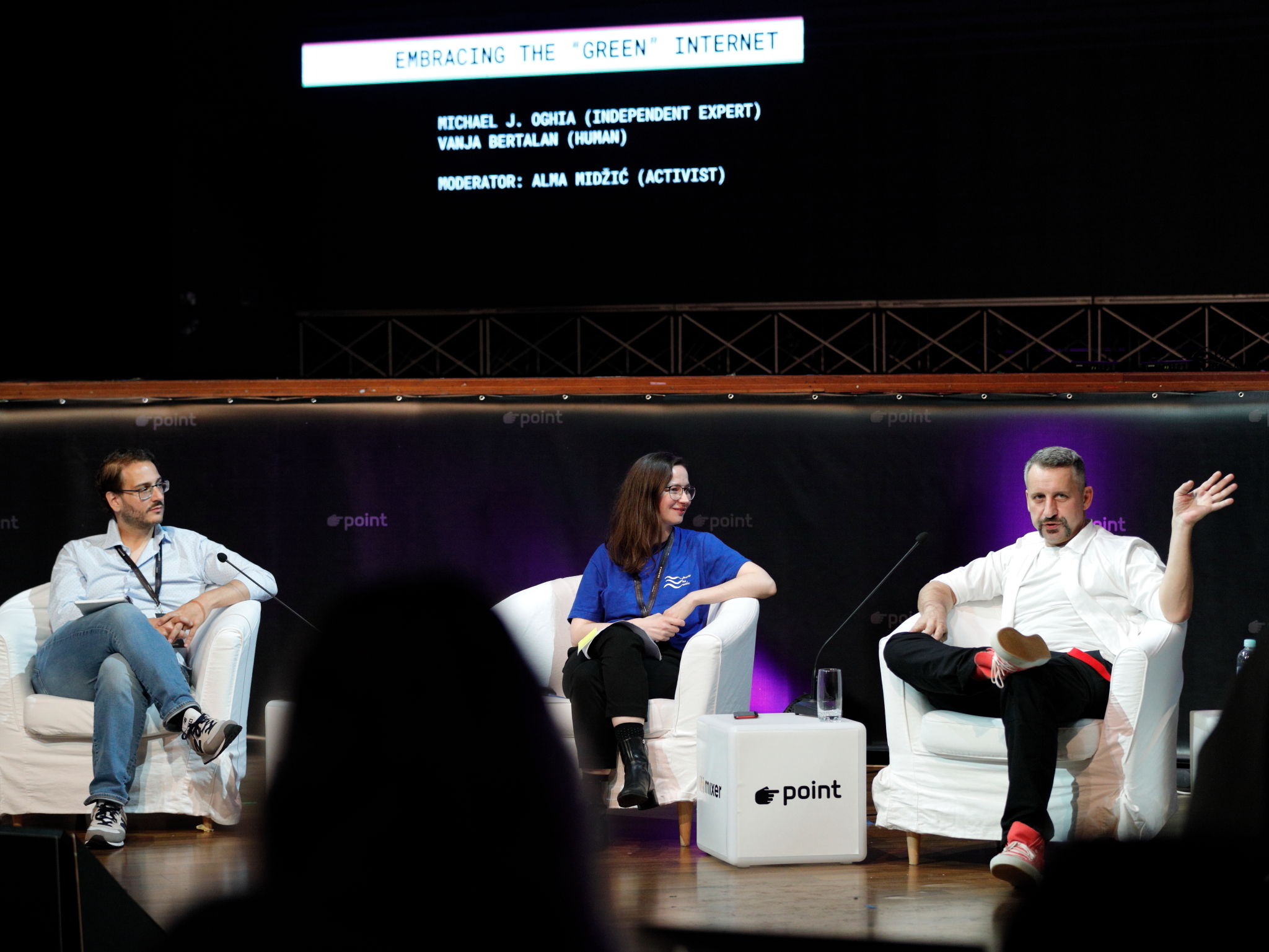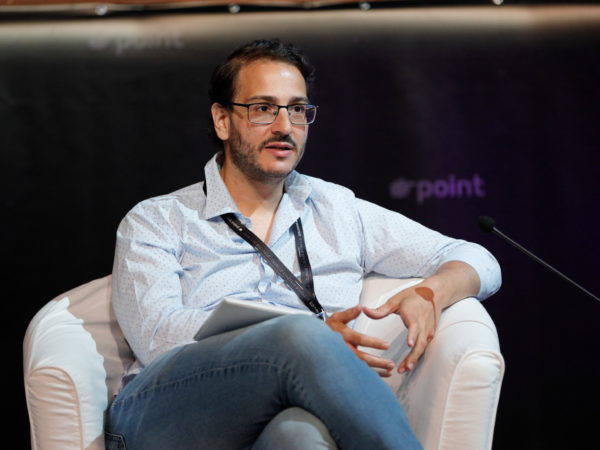Embracing the “green” Internet
The second panel of the POINT 1011 Conference tackled the issue of technology and the environment. One of the topics was greenwashing, a practice when a company makes an environmental claim about something the organization is doing that is intended to promote a sense of the environmental impact that doesn’t exist.

Photo: Vanja Čerimagić
The moderator of the panel was Alma Midžić, a political scientist who took part in many initiatives for the protection of green public spaces and common goods. She called on ICT sustainability advocate Michael J. Oghia to set the framework of the discussion.
“Everything virtual connects to something physical”. With those words, Michael J. Oghia opened a discussion on the green Internet. This thesis is exemplified by the mobile phone and how it connects to human rights and the environment, Oghia said. At the beginning of the life cycle of the mobile phone, there is mineral mining which has a great impact on the environment and it’s often done in conflict zones.

Photo: Vanja Čerimagić
At the end of that cycle, there is e-waste that is growing exponentially. A lot of that waste ends up in dump sites, like one in Accra Ghana where young children are dismantling devices in search of valuable materials. Michael pointed out that in 2019 around 70 billion dollars worth of e-waste was un-recycled, and only 17,4% of e-waste was actually recycled worldwide. This has only scratched the surface of the issue of resources and not energy consumption. When it comes to carbon emissions, ICT is responsible for about only 1 – 2% of all world’s emissions, and about 10% of electricity use.
Alma then asked Vanja Bertalan, an experienced digital strategist and co-founder of Human, to share his opinion on what can be done from the business perspective.
Vanja had a gloomy response suggesting that nothing is being done in the Balkan region regarding the green Internet.

Photo: Vanja Čerimagić
“I suppose we can agree that the permanent function of business is creating profit. If thinking about that ecosystem, if helping is not mandatory then why should they do it?”, asked Vanja and continued to talk about motivation and the need for incentives, whether positive or negative, to help things move forward.
Then Alma asked him about greenwashing, a practice when a company makes an environmental claim about something the organization is doing that is intended to promote a sense of the environmental impact that doesn’t exist.
Vanja explained that greenwashing is a great PR opportunity and that a lot of companies are really taking it, suggesting that for some of them, any PR is good PR. “So, if we can get some kind of push through the greenwashing initiatives, maybe that’s not such a bad thing. I’m not taking sides here, just opening up possibilities”, Vanja said.
As for greenwashing, Michael quoted a friend and said: “If corporate or organizational leadership has no actionable accountability, a tide to any kind of sustainability target, it’s nothing more than a marketing ploy”.
Panelists also talked about water consumption, and pointed out that the vast majority of freshwater resources are used for the production of something that will be used. Also, running a data center is water intensive.
“We as humans are great at many things, but there are some things we are not very good at and one of them is taking the future seriously. Until it’s in front of your face, we’re not going to do anything,” Vanja said in the conclusion of the panel. He pointed out the need for communication on a massive scale, and that it needs to be funded.
At the end of the panel, Michael called for prolonging the longevity of the devices we use, and opening repair shops. “If anybody’s an activist here, supporting your local ‘right to repair’ workshops is important. If you don’t have a ‘right to repair’ workshop, please start one”.
Author: Biljana Livančić-Milić